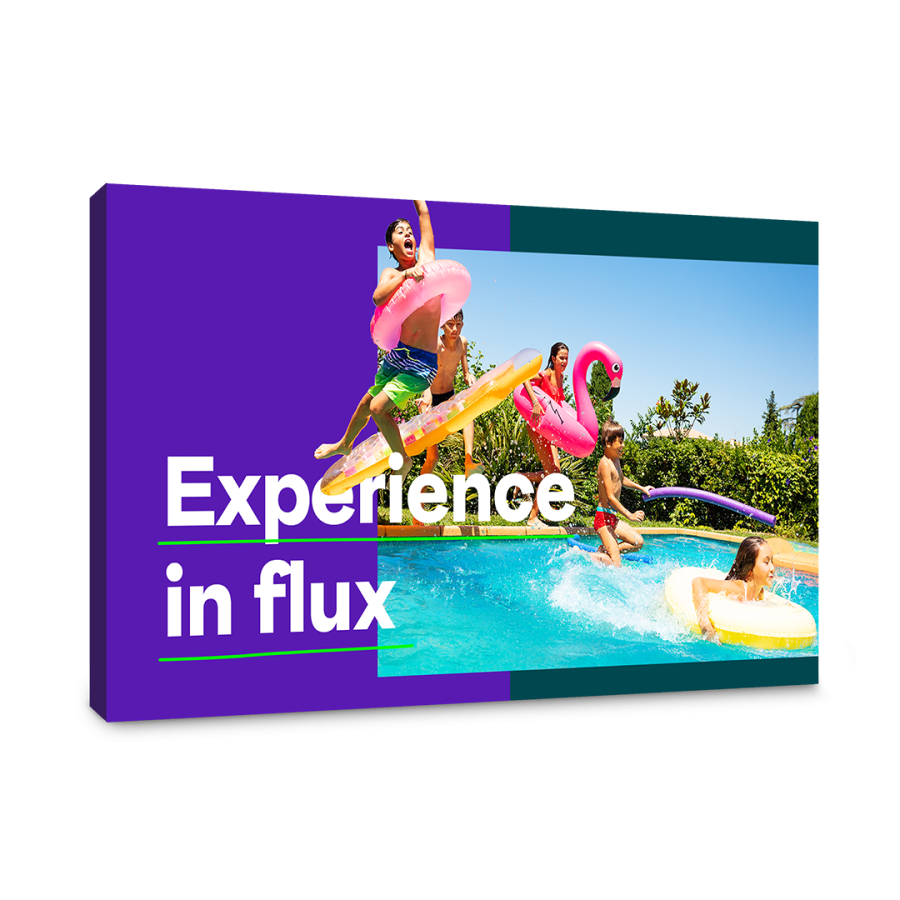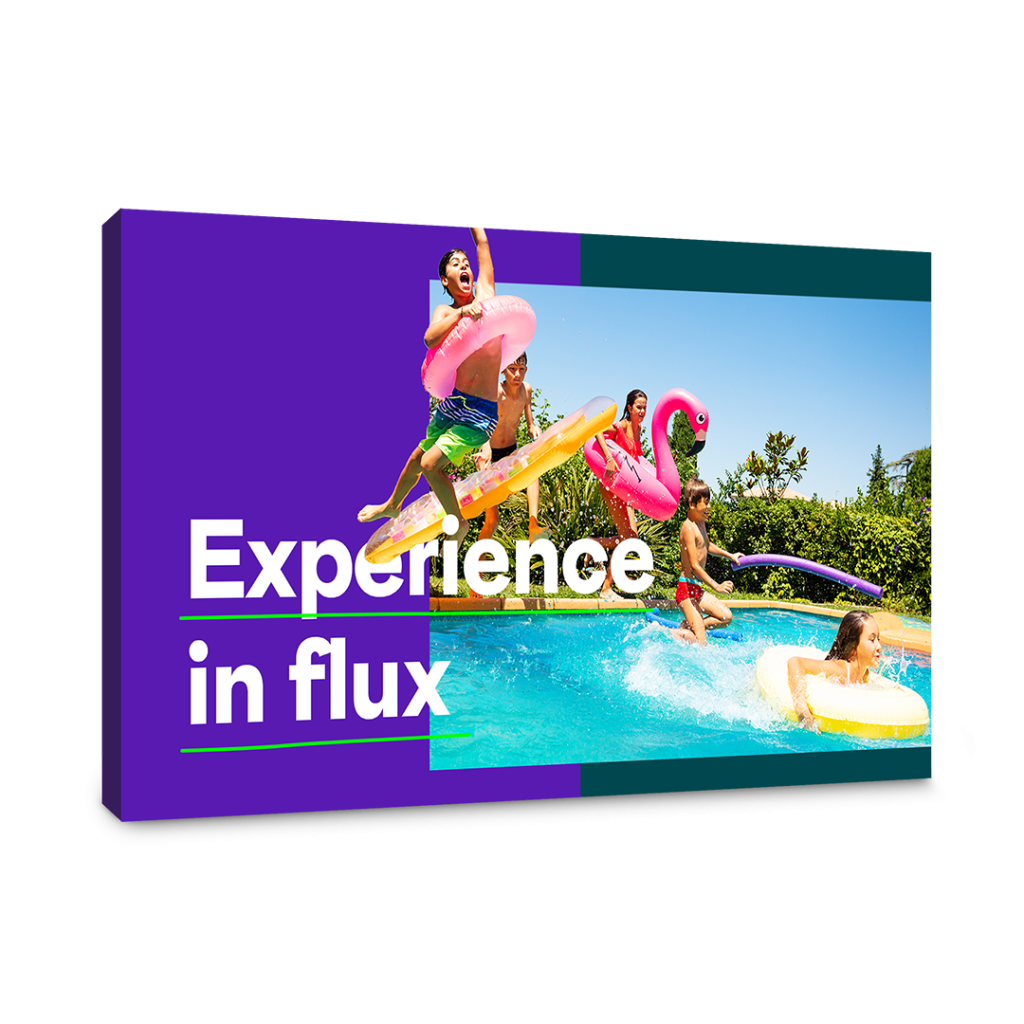From generic to genius: redefining consumer experiences in travel
Explore how personalisation and delight transform travel from routine to remarkable.


Lillian Lam
28 October 2025
5 min read
Travelling has never been more personal or more demanding. Today’s travellers expect every journey to feel like it was designed just for them, from the first click to the final check-out. They want consumer experiences that anticipate, delight and adapt in real time. As this new wave of expectation rises, it’s reshaping what great travel looks like and what brands must do to stay ahead.
The new benchmark for consumer experiences in travel
In our recent Experience in flux report, we found that 74%* of consumers expect bespoke experiences, while nearly half find generic journeys frustrating. Whether planning a family trip, a solo adventure or a business flight, travellers now demand brands that know them, adapt to them and, most importantly, surprise them.
That shift transforms what great CX looks like in travel. It’s no longer about smooth check-ins or quick rebookings. Those are table stakes. The new benchmark lies in anticipation and delight: being one step ahead, offering support before it’s asked for and creating moments that make people feel seen.
As expectations rise, so does influence. The next wave of travellers isn’t waiting for the future, they’re already shaping it.
Inspired by tomorrow’s travellers
To glimpse where travel is heading, we look at those who’ve never known a world without personalisation: Generation Alpha.
Born between 2010 and 2025, they’ve grown up with streaming algorithms, voice assistants and infinite choice. For them, personalisation isn’t a feature, it’s the default. And their influence extends far beyond their age group. Today, 81%* of adults ask under-25s for advice on digital experiences and 57%* of parents and grandparents say children shape their travel decisions.
Our CX research uncovered four design codes inspired by this new generation. These four principles offer a roadmap for creating richer, more human consumer experiences in travel:
- Identity paths: journeys that evolve with travellers’ moods and life stages.
- Co-created tracks: personalisation done with travellers, not for them.
- Sensory synchrony: multi-sensory environments that calm, energise or inspire.
- Anticipatory care: emotionally intelligent service that feels like a caring friend.
While these codes draw inspiration from Gen Alpha, they capture something universal: the human desire for connection, meaning and care in every journey.
Identity paths: experiences that grow with you
The most memorable journeys mirror who we are and who we’re becoming. Travel brands that embrace ‘Identity Paths’ understand that needs shift over time, from adventurous solo trips to restorative getaways or family explorations.
AI is increasingly helping travellers navigate those changing desires. Expedia’s ChatGPT-enabled app, for instance, offers tailored suggestions based on personal preferences and trip history. It organises ideas into dynamic “trip boards”, helping users balance nostalgia with novelty and stay true to their evolving selves.
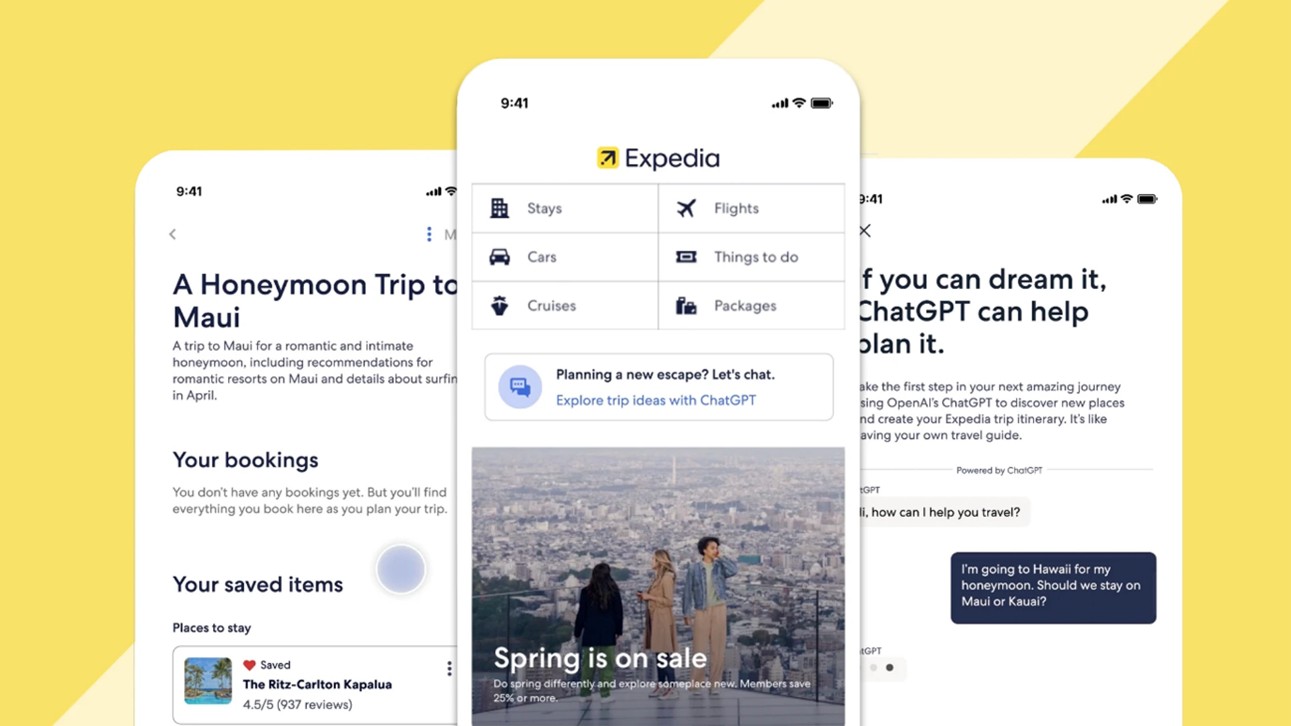
By designing experiences that grow with travellers, brands move beyond transactions. They become companions on a lifelong journey of discovery.
Co-created tracks: designing with you, not for you
Travellers no longer want to be passive consumers, they want to co-create their adventures. The rise of collaborative personalisation means listening, adapting, and empowering people to shape their own journey.
Yet travel planning today can be overwhelming. From choosing destinations and flights to selecting hotels, restaurants and activities, the sheer number of options often leads to decision fatigue. Here, personalisation powered by AI becomes a powerful enabler of co-creation. It helps travellers shape their journeys with confidence rather than compromise.
- Empowering exploration: off-the-beaten-path recommendations reveal hidden gems.
- Streamlining booking: pre-filled preferences and dynamic offers simplify reservations.
- Enhancing on-trip support: real-time updates and custom alerts keep travellers prepared.
- Strengthening loyalty: bespoke perks and recognition transform one-time guests into advocates.
Airbnb’s “Experiences” illustrate this shift beautifully. What began as a booking platform now connects travellers with locals who share their passions, from cooking classes in Kyoto to sunrise hikes in Patagonia. These shared experiences blur the line between host and guest, creating connection that lingers long after the trip ends.
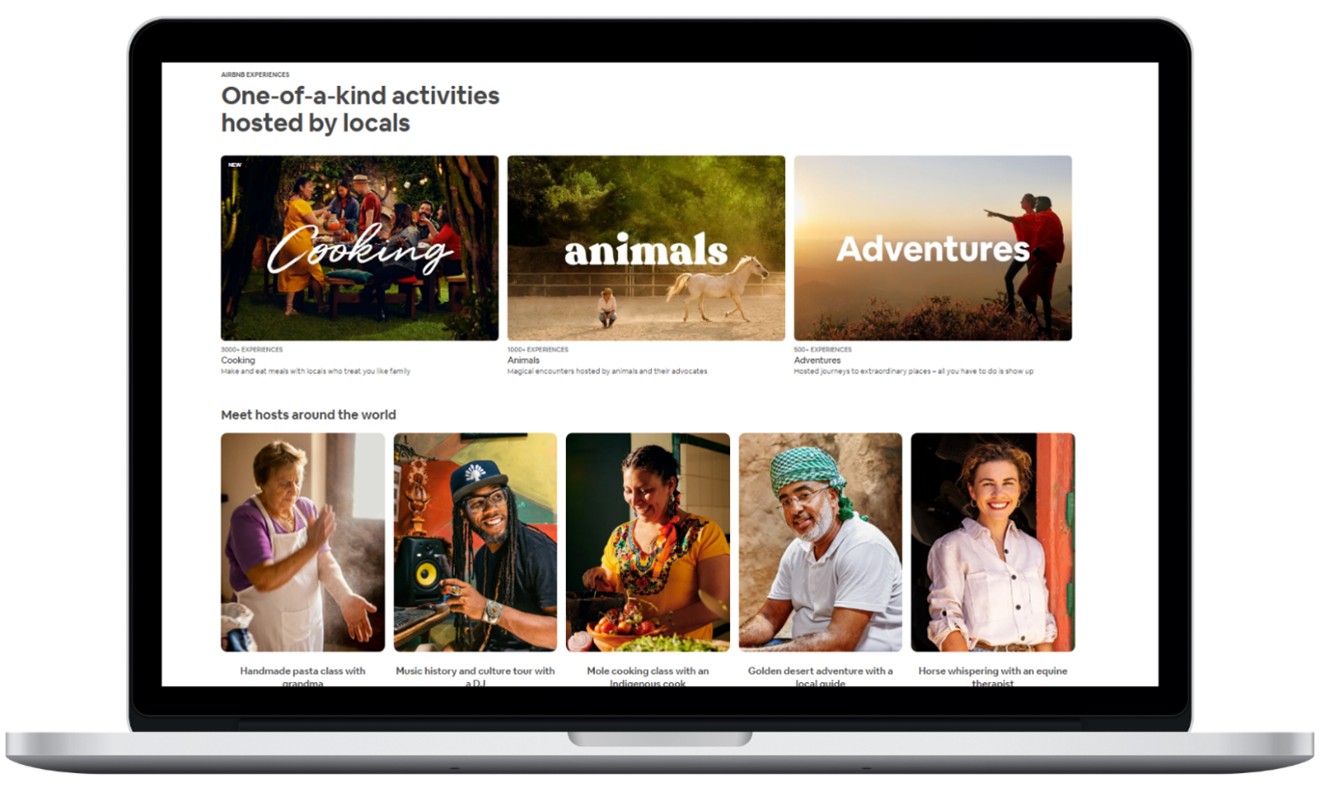
When travellers co-create, they don’t just feel understood, they feel involved.
Sensory synchrony: delighting the senses
Travel is a full-body experience. From the scent of a hotel lobby to the sound of waves outside a villa, sensory cues shape how travellers feel and remember. Brands that craft multi-sensory environments create deeper emotional engagement and lasting delight.
Small surprises create lasting memories. Our APAC survey shows that 81%** of travellers value unexpected moments of joy, while 77%** remember brands that go above and beyond. McKinsey research confirms that brands delivering delight see a 28-point boost in tourism NPS. In short, delight isn’t optional, it’s a potent business driver.
No one embodies this better than Singapore’s Changi Airport. Beyond its flawless operations, Changi offers butterfly gardens, curated scent journeys and wellness zones designed to calm or energise. Every detail, from lighting to soundscapes, is intentional, transforming a transit space into a destination in itself.
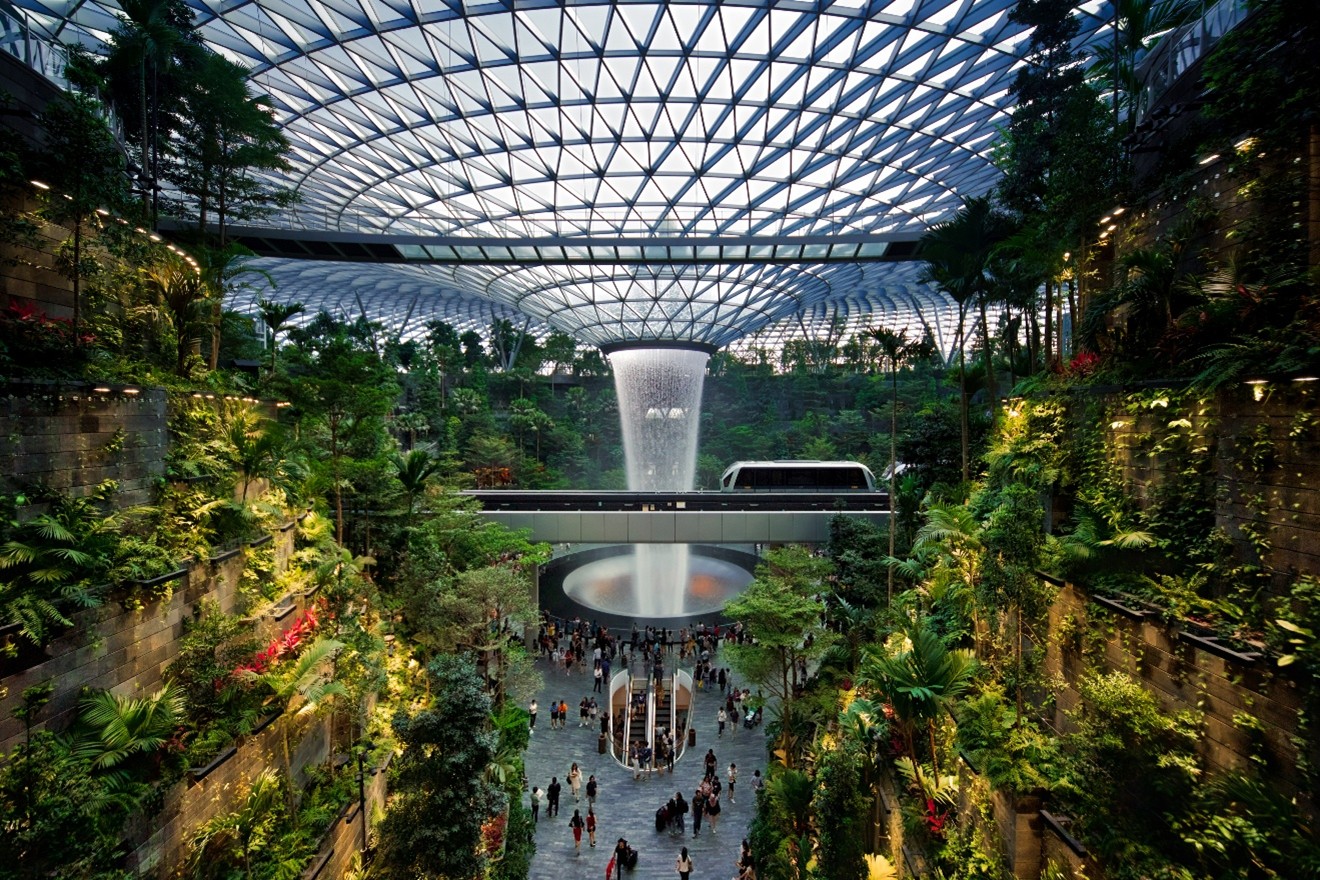
When brands design for delight, they create experiences that don’t just satisfy, they stay with us.
Anticipatory care: knowing what’s needed before it’s said
The most powerful form of personalisation is empathy in action: knowing what someone needs before they have to ask.
Ping An Insurance in China exemplifies this with its automated travel support. When flights are delayed or cancelled, customers receive instant lounge access or rebooking assistance. It’s a proactive gesture that prevents frustration and builds trust.
Our APAC research confirms that travellers increasingly crave this kind of intelligent care. 47%** say they’d use a personalised AI concierge to help plan and manage their trips. It’s not just convenience they want; it’s reassurance that someone (or something) is looking out for them.
When brands anticipate needs and respond with warmth, they elevate service into something human, even when powered by technology.
Orchestrating the journey ahead
Imagine an airline that celebrates your 50th flight with a personalised message.
A hotel that remembers your anniversary with locally crafted treats.
An airport lounge that adapts its lighting to your circadian rhythm.
These aren’t far-off dreams, they’re the natural next step for travel brands that commit to empathy-led innovation. The future of travel lies in orchestration. It’s about connecting moments across ecosystems in a seamless, privacy-respecting way.
We help brands bridge the gap between data and human emotion. Through our CX design codes, online insight communities and the combination of AI with human insight, we help you co-create experiences that truly matter to travellers.
Because in the end, great consumer experiences in travel don’t just move people.
They move hearts.
*Numbers based on research with 1,395 people across: China, UK and US.
**Numbers based on research with 3,972 people across: Australia, China, Hong Kong, Philippines and Singapore.
Report
Get your copy!
Want to explore our personalisation and signature delight codes in more detail? Download a FREE copy of our Experience in Flux report.
Request your free access